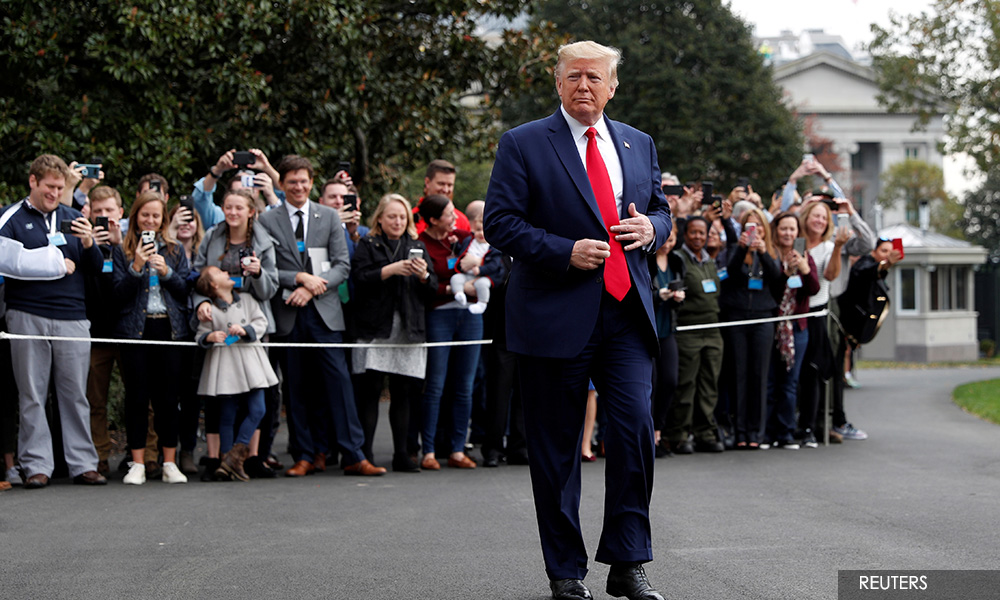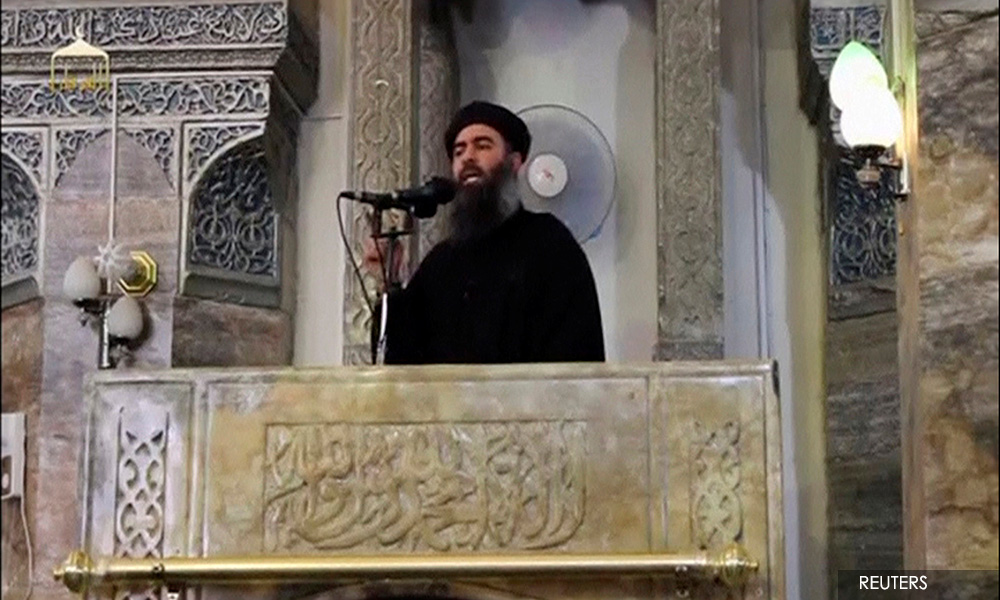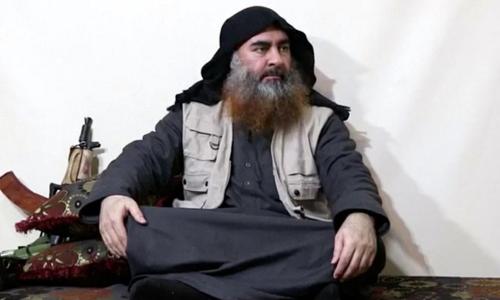Islamic State leader Baghdadi reportedly killed in Syria by U.S. forces
The United States had put up a $25 million reward for the capture of Baghdadi, who has led the group since 2010, when it was still an underground offshoot of al Qaeda in Iraq.
A U.S. official, speaking on condition of anonymity, told Reuters that Baghdadi was targeted in the overnight raid but was unable to say whether the operation was successful.
He was believed to have been killed in a raid in the early hours of Sunday involving helicopters, warplanes and a ground clash in the Syrian village of Barisha near the Turkish border.
Baghdadi was long thought to be hiding somewhere along the Iraq-Syria border.
His self-declared "caliphate" will be remembered for atrocities against religious minorities and attacks on five continents in the name of a fanatical interpretation of Islam that horrified mainstream Muslims.
Two Iraqi security sources and two Iranian officials said they had received confirmation from inside Syria that Baghdadi had been killed.
"Our sources from inside Syria have confirmed to the Iraqi intelligence team tasked with pursuing Baghdadi that he has been killed with his personal bodyguard in Idlib (province) after his hiding place was discovered when he tried to get his family out of Idlib towards the Turkish border," one of the Iraqi officials said.
Iraqi state television broadcast footage from the raid, including daytime images of a crater in the ground and what appeared to be the aftermath of a clash, with torn and blood-stained clothes on the ground. It also showed night-time footage of an explosion.
The broadcaster quoted an expert on terrorism saying Iraqi intelligence agencies had helped pinpoint Baghdadi's location.
U.S. magazine Newsweek, which first reported the news, said it had been told by a U.S. Army official briefed on the raid that Baghdadi was dead.
The Pentagon did not immediately respond to a request for comment.
The commander of the Kurdish-led Syrian Democratic Forces (SDF) said joint intelligence work with the United States had resulted in a "successful operation" in an apparent reference to the raid.
The Britain-based war monitor the Syrian Observatory for Human Rights said nine people were killed during the two-hour raid, including two women and at least one child. It did not know if Baghdadi was among the dead.
A house thought to be the main target was struck from the air, and fighters then descended from helicopters and engaged in ground clashes, said the Observatory, which has a network of sources in Syria.

US President Donald Trump (above) gave an indication that something was afoot when he tweeted without explanation, "Something very big has just happened!"
White House spokesman Hogan Gidley announced that Trump would make a "major statement" at 9 a.m. EST (1300 GMT) on Sunday. Gidley gave no further details.
Trump has faced withering criticism from both Republicans and Democrats alike for his U.S. troop withdrawal from northeastern Syria, which permitted Turkey to attack America's Kurdish allies.
Many critics of Trump's Syria pullout have expressed worries it would lead the Islamic State militancy to regain strength and pose a threat to U.S. interests.
An announcement about Baghdadi's death could help blunt those concerns.
U.S. officials had feared Islamic State would seek to capitalise on the upheaval in Syria but they also saw a potential opportunity, in which Islamic State leaders might break from more secretive routines to communicate with operatives.
This would potentially create a chance for the United States and its allies to detect them.
On Sept. 16, Islamic State's media network issued a 30-minute audio message purporting to come from Baghdadi, which called on supporters to free women jailed in camps in Iraq and Syria over their alleged links to his group.

Baghdadi (above) also said the United States and its proxies had been defeated in Iraq and Afghanistan, and that the United States had been "dragged" into Mali and Niger.
At the height of its power Islamic State ruled over millions of people in territory running from northern Syria through towns and villages along the Tigris and Euphrates valleys to the outskirts of the Iraqi capital Baghdad.
But the fall in 2017 of Mosul and Raqqa, its strongholds in Iraq and Syria respectively, stripped Baghdadi, an Iraqi, of the trappings of a caliph and turned him into a fugitive.
U.S. air strikes killed most of his top lieutenants, and before Islamic State published a video message of Baghdadi in April there had been conflicting reports over whether he was alive.
Despite losing its last significant territory, Islamic State is believed to have sleeper cells around the world, and some fighters operate from the shadows in Syria's desert and Iraq's cities.
-Reuters
RM12.50 / month
- Unlimited access to award-winning journalism
- Comment and share your opinions on all our articles
- Gift interesting stories to your friends
- Tax deductable
